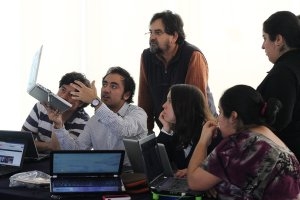
The key to organizing a hackathon is to start with “Why?”
As Simon Sinek says in "Start with Why", great leaders inspire action because what motivates them is the meaning of a situation, not what to do or how to do it.
Sinek explains how the Wright brothers, young farmers who never finished high school, became the first to build a machine that could fly, although their main rival for that claim had financial support from the U.S. War Department and was beloved by the New York Times. Why did the Wright brothers succeed? They possessed the deepest certainty that if they could make an aircraft that could leave the ground and fly through the air, the world would be changed forever.
The lesson: If hackathon attendees don’t understand why they are there, it will be tough for them to stay emotionally and rationally connected to the objective.
Read Knight International Journalism Fellow and Poderopedia founder Miguel Paz’ advice for planning and organizing a successful hackathon.
The International Journalists' Network, IJNet, keeps professional and citizen journalists up to date on the latest media innovations, online journalism resources, training opportunities and expert advice. ICFJ produces IJNet in seven languages: Arabic, Chinese, English, Persian, Portuguese, Russian and Spanish. IJNet is supported by donors including the John S. and James L. Knight Foundation.